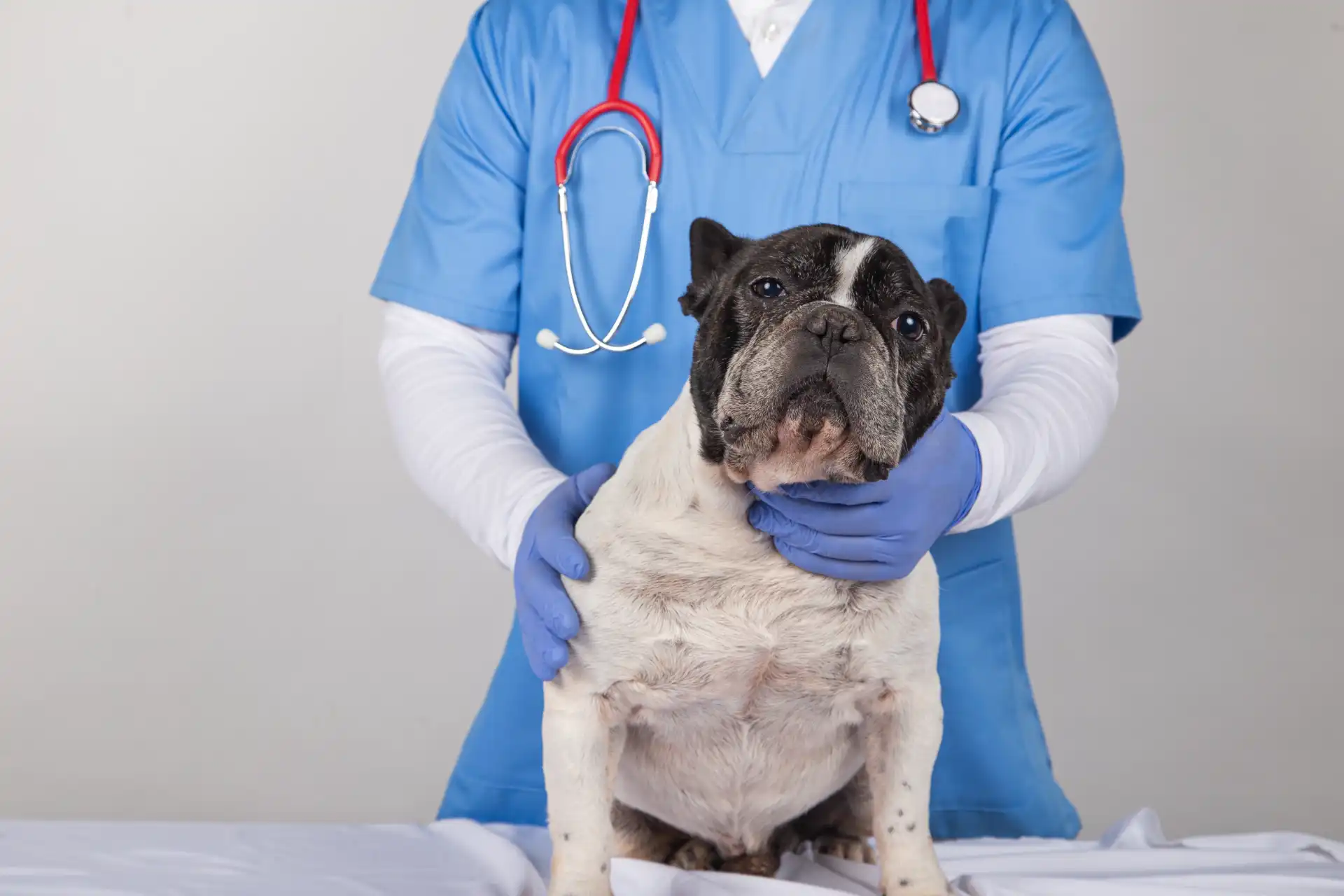The Continental Bulldog was bred to be healthier and more athletic than its English cousin—but no breed is entirely risk-free. Whether you’re a new owner or a lifelong fan, it’s crucial to understand common Continental Bulldog health issues and how to prevent them before they become costly or dangerous.
1. Hip Dysplasia
Though less common than in English Bulldogs, Continental Bulldogs can still suffer from hip dysplasia—a genetic condition where the hip joint doesn’t form correctly.
Prevention: Buy from breeders who screen for hip issues. Keep your dog at a healthy weight and avoid jumping from heights during puppyhood.
2. Allergies (Food & Environmental)
Continental Bulldogs can develop allergies to certain foods (like chicken or grains) and environmental triggers like pollen or dust mites.
Prevention: Feed a clean, limited-ingredient diet. Use hypoallergenic dog shampoo and keep bedding clean.
Need food guidance? Check out our bulldog-specific diet plan.
3. Cherry Eye
This is a prolapse of the third eyelid gland. It looks like a red mass in the corner of your dog’s eye.
Prevention: There’s no guaranteed prevention, but regular eye checks and early detection improve outcomes. In severe cases, minor surgery may be required.
4. Obesity
Bulldogs are prone to weight gain, which can lead to joint problems, diabetes, and heart issues.
Prevention: Stick to portion-controlled feeding, avoid table scraps, and ensure daily exercise.
Use our free dog weight tracker to stay on top of your pup’s health.
5. Skin Fold Dermatitis
While Continentals have fewer wrinkles than English Bulldogs, moisture can still collect in skin folds and cause infection.
Prevention: Wipe folds with a damp cloth regularly and dry thoroughly. Use vet-recommended antiseptic wipes if needed.
6. Brachycephalic Syndrome (Less Severe)
Thanks to improved breeding, Continental Bulldogs are less brachycephalic—but some may still exhibit signs of restricted breathing.
Prevention: Avoid overheating, never over-exercise in hot weather, and monitor for snoring or labored breathing.
Learn more in our heat safety guide for bulldogs.
7. Entropion (Inward-Turning Eyelids)
This painful condition causes the eyelid to roll inward, irritating the eye. It’s more common in certain bloodlines.
Prevention: Reputable breeding and early detection. Surgery may be necessary in advanced cases.
8. Heart Conditions
Some Continental Bulldogs may be prone to congenital heart defects such as aortic stenosis or irregular rhythms.
Prevention: Routine vet exams and early screening through ECG or echocardiograms, especially if your breeder flags a risk.
9. Ear Infections
Due to their short, folded ears, moisture can get trapped and lead to bacterial or yeast infections.
Prevention: Clean ears weekly with a gentle, vet-approved solution. Dry thoroughly after baths or swimming.
10. Joint and Ligament Strain
Even with their athletic build, Continental Bulldogs can suffer joint injuries—especially if overweight or overly active early in life.
Prevention: Use padded flooring, don’t let your pup jump on/off furniture unsupervised, and support joints with supplements like glucosamine.
General Health Tips for Continental Bulldogs
- Annual vet check-ups are non-negotiable—stay proactive
- Microchip + ID tags help in emergencies
- Use a harness instead of a collar for safer walks
Need a checklist? Download our Continental Bulldog Health Checklist.
Final Thoughts on Continental Bulldog Health Issues
While Continental Bulldog health issues are fewer and generally milder than other bulldog breeds, responsible ownership makes all the difference. Proactive care, good nutrition, and choosing the right breeder can give your dog a long, happy life.
Healthy bulldogs start with informed owners. You’re already doing the work — and your pup will thank you for it.
FAQ
Are Continental Bulldogs healthier than English Bulldogs?
Yes, overall. They were bred specifically to avoid common English Bulldog issues like severe brachycephalia and extreme joint problems.
How often should I take my Continental Bulldog to the vet?
At least once a year for a wellness exam. Puppies may need visits every few months for vaccinations and growth monitoring.
Can I get pet insurance for my bulldog?
Absolutely. Pet insurance can be helpful for managing costs related to surgeries, emergencies, or chronic conditions.

